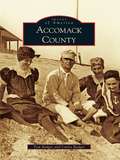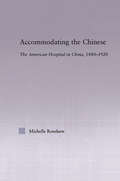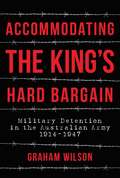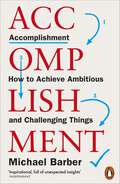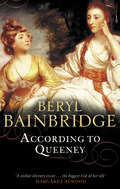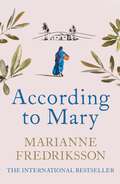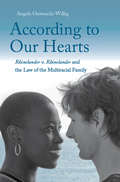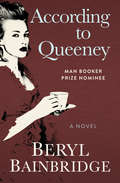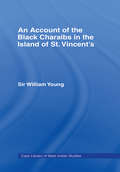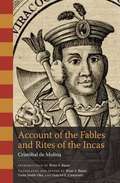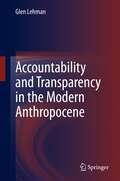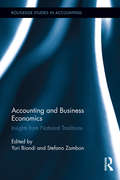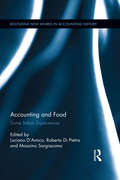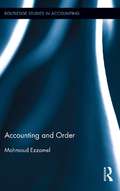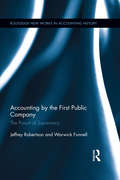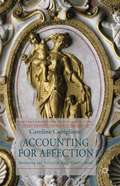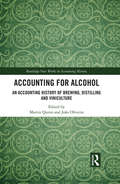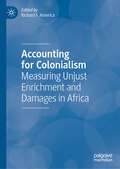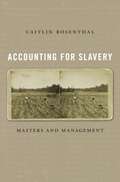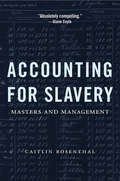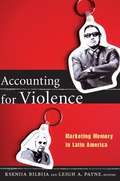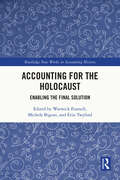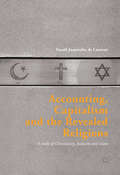- Table View
- List View
Accomack County
by Curtis Badger Tom BadgerAquarena Springs was the culmination of a dream shared by two men: Arthur Birch (A. B.) Rogers and his son Paul J. Rogers. The Spring Lake Park Hotel opened at the headwaters of the San Marcos River in 1929. Soon, Aquarena Springs would become one of the premier tourist destinations in the Southwest. Attractions such as glass bottom boats, a Swiss sky ride, Texana Village, and the world's only submarine theater delighted hundreds of thousands of visitors each year. From special events like the underwater wedding featured in Life magazine to the daily antics of nationally known Ralph the Swimming Pig, Aquarena provided entertainment and created lifelong memories for countless families. In recent years, under the auspices of the River Systems Institute at Texas State University, Aquarena has become an important center for environmental education and research.
Accommodating the Chinese: The American Hospital in China, 1880-1920 (East Asia: History, Politics, Sociology and Culture)
by Michelle Campbell RenshawThis in-depth comparative study demonstrates that the hospital established in China - its planning and architecture, financing, and all aspects of day-to-day operation - differed from its counterpart at home. These differences were never due to a single, or even dominant cause. They were a result of a complex process involving accommodation, appreciation, negotiation, opportunism and pragmatism.
Accommodating the King's Hard Bargain: Military Detention in the Australian Army 1914-1947
by Graham WilsonLike all crime and punishment, military detention in the Australian Army has a long and fraught history. Accommodating The King&’s Hard Bargain tells the gritty story of military detention and punishment dating from colonial times with a focus on the system rather than the individual soldier. World War I was Australia&’s first experience of a mass army and the detention experience was complex, encompassing short and long-term detention, from punishment in the field to incarceration in British and Australian military detention facilities. The World War II experience was similarly complex, with detention facilities in England, Palestine and Malaya, mainland Australia and New Guinea. Eventually the management of army detention would become the purview of an independent, specialist service. With the end of the war, the army reconsidered detention and, based on lessons learned, established a single &‘corrective establishment&’, its emphasis on rehabilitation. As Accommodating The King&’s Hard Bargain graphically illustrates, the road from colonial experience to today&’s tri-service corrective establishment was long and rocky. Armies are powerful instruments, but also fragile entities, their capability resting on discipline. It is in pursuit of this war-winning intangible that detention facilities are considered necessary — a necessity that continues in the modern army.
Accomplishment: How to Achieve Ambitious and Challenging Things
by Michael Barber'Excellent . . . reveals that high accomplishment has a signature pattern that reoccurs from sport to politics to business to government' Matthew SyedThere is no secret formula for success, especially when tackling a new challenge. But what if there were a pattern you could follow? A way of mapping the route and navigating the obstacles that arise?Michael Barber has spent many years advising governments, businesses and major sporting teams around the world on how to achieve ambitious goals on time. Drawing on stories of historic visionaries and modern heroes - from Mary Fischer and Rosa Parks to Paula Radcliffe and Gareth Southgate - Barber presents a unique combination of personal anecdote, historical evidence and interviews from inspirational figures to unpack the route to success.
According To Queeney
by Beryl Bainbridge'A stellar literary event . . . written with panache and an enviable economy . . . the biggest risk of her literary life' Margaret AtwoodAccording to Queeney is a masterly evocation of the last years of Dr Johnson, arguably Britain's greatest Man of Letters. The time is the 1770s and 1780s and Johnson, having completed his life's major work (he compiled the first ever Dictionary of the English Language) is running an increasingly chaotic life. Torn between his strict morality and his undeclared passion for Mrs Thrale, the wife of an old friend, According to Queeney reveals one of Britain's most wonderful characters in all his wit and glory. Above all, though, this is a story of love and friendship and brilliantly narrated by Queeney, Mrs Thrale's daughter, looking back over her life.
According to Mary
by Marianne Fredriksson'Intriguing, funny and moving' EVE magazine'Simply mesmerising...a wonderfully moving portrait of a passionate and controversial figure from myth and history' MS LONDON'Her gospel contains many episodes familiar from the others, but it is radical in its feminisation of them' INDEPENDENTLong after the death of Christ, Mary Magdalene is married to a silk merchant, Leonidas. She lives a quiet and harmonious life until, one day, the apostle Peter comes to the market square to preach and she slips into the crowd to hear what he has to say. She is not impressed, and wants to forget that Jesus chose death, not life with her. But she has reckoned without the apostles who persuade her to write down everything she can remember. Mary starts with her Jewish childhood and the slaughter of her family by the Romans. Running for her life, she is rescued by Leonidas who leaves her in a 'house of pleasure' where she grows into a beautiful woman. Then she meets and falls deeply in love with a young man from Nazareth - and her life changes. . .
According to Mary
by Marianne Fredriksson'Intriguing, funny and moving' EVE magazine'Simply mesmerising...a wonderfully moving portrait of a passionate and controversial figure from myth and history' MS LONDON'Her gospel contains many episodes familiar from the others, but it is radical in its feminisation of them' INDEPENDENTLong after the death of Christ, Mary Magdalene is married to a silk merchant, Leonidas. She lives a quiet and harmonious life until, one day, the apostle Peter comes to the market square to preach and she slips into the crowd to hear what he has to say. She is not impressed, and wants to forget that Jesus chose death, not life with her. But she has reckoned without the apostles who persuade her to write down everything she can remember. Mary starts with her Jewish childhood and the slaughter of her family by the Romans. Running for her life, she is rescued by Leonidas who leaves her in a 'house of pleasure' where she grows into a beautiful woman. Then she meets and falls deeply in love with a young man from Nazareth - and her life changes. . .
According to Our Hearts
by Angela Onwuachi-WilligThis landmark book looks at what it means to be a multiracial couple in the United States today. According to Our Hearts begins with a look back at a 1925 case in which a two-month marriage ends with a man suing his wife for misrepresentation of her race, and shows how our society has yet to come to terms with interracial marriage. Angela Onwuachi-Willig examines the issue by drawing from a variety of sources, including her own experiences. She argues that housing law, family law, and employment law fail, in important ways, to protect multiracial couples. In a society in which marriage is used to give, withhold, and take away status--in the workplace and elsewhere--she says interracial couples are at a disadvantage, which is only exacerbated by current law.
According to Queeney: A Novel
by Beryl BainbridgeThis historical novel set during the eighteenth century recounts the tumultuous final years of famed English lexicographer and poet Samuel Johnson. In 1764, Britain's greatest man of letters--the writer of the first English dictionary--shut himself in his room and refused to come out. Exhausted from working on an edition of Shakespeare's plays, Samuel Johnson had fallen into a deep depression. He refused to eat and only opened his door to cry out incomprehensible phrases or empty his chamber pot. Finally, a priest was able to lure the scholar out of confinement, and, as he did, Johnson's friend Henry Thrales arrived. Shocked by Johnson's fit of madness, Thrales promptly whisked the man away for recuperation at a country mansion south of London. Thus began one of the happiest periods of Johnson's life. At the Thrales residence in Streatham, Johnson regained his sanity and engaged in family life. He selected books for the estate's library, joked around at parties, and became close to Thrales's wife, Hester. But as the years passed, the affection between Johnson and Hester developed into a dark romantic affair, the Thrales's daughter grew up and became aware of her mother's emotional unavailability, and Johnson's passions and eccentricities led to cumbersome moral and spiritual dilemmas. With chapter titles taken from entries in Johnson's legendary dictionary, lauded British author Beryl Bainbridge paints a well-rounded portrait of an extraordinary man and his all-too-human experiences. Written from the perspective of the Thrales's daughter, According to Queeney heightens fact with fiction, sincerity with irony, and humor with despair. Longlisted for the Man Booker Prize, it is a captivating account of the Georgian era, lending modern insight to British history.
Account of the Black Charaibs in the Island of St Vincent's: Charaib Treaty Of 1773, And Other Original Documents
by Sir Williams YoungCompiled from the original documents of Sir William Young who headed a commission to the island after it was annexed to Britain in 1763, this history shows an independent people in their struggle against the Red Charaibs and then against the British settlers.
Account of the Fables and Rites of the Incas
by Cristóbal De MolinaOnly a few decades after the Spanish conquest of Peru, the third Bishop of Cuzco, Sebastian de Lartaun, called for a report on the religious practices of the Incas. The report was prepared by Cristobal de Molina, a priest of the Hospital for the Natives of Our Lady of Succor in Cuzco and Preacher General of the city. Molina was an outstanding Quechua speaker, and his advanced language skills allowed him to interview the older indigenous men of Cuzco who were among the last surviving eyewitnesses of the rituals conducted at the height of Inca rule. Thus, Molina's account preserves a crucial first-hand record of Inca religious beliefs and practices. This volume is the first English translation of Molina's Relacion de las fabulas y ritos de los incas since 1873 and includes the first authoritative scholarly commentary and notes. The work opens with several Inca creation myths and descriptions of the major gods and shrines (huacas). Molina then discusses the most important rituals that occurred in Cuzco during each month of the year, as well as rituals that were not tied to the ceremonial calendar, such as birth rituals, female initiation rites, and marriages. Molina also describes the Capacocha ritual, in which all the shrines of the empire were offered sacrifices, as well as the Taqui Ongoy, a millennial movement that spread across the Andes during the late 1560s in response to growing Spanish domination and accelerated violence against the so-called idolatrous religions of the Andean peoples.
Accountability and Transparency in the Modern Anthropocene
by Glen LehmanThe book is about accountability processes and how they contribute solutions to our current environmental and global political problems. This book is different to other literature in this field. This is so because the dominant accountability discourse is shaped by what is defined as a neoliberal business case for social and environmental reform. This book assumes a nirvana stance within globalisation where all citizens operate within the parameters of the free market and will recover from adverse economic and political damage. Further this book uses neoliberalism and free-market reforms aims as examples to implement efficient management technologies and create more competitive pressures. Central to the argument of the book are perspectives on authenticity, expressivism and interpretivism which are found to provide a radical reworking of our understanding of being in the world. These frameworks offer a starting point for rethinking the way individuals, businesses and communities ought to be dealing politically with accountability and ecological crises. The argument builds to an accountability perspective that utilises work from expressivism, interpretivism, classical liberalism and postmodern theory. The theoretical quest undertaken in this book is to develop connections between accountability, democratic, ethical and ecological perspectives.
Accounting Discretion of Banks during a Financial Crisis
by Harry Huizinga Luc LaevenAccounting Discretion of Banks during a Financial Crisis
Accounting and Business Economics: Insights from National Traditions (Routledge Studies in Accounting)
by Yuri Biondi Stefano ZambonThe recent financial crisis has sparked debates surrounding the nature and role of accounting in informing capital markets and regulatory bodies about the financial performance and position of a firm. These debates have drawn attention to the broader implications of accounting for the economy and society. Accounting and Business Economics brings together leading international scholars to examine the current state of accounting theory and its fundamental connection with the economics and finance of firms, viewing the business entity from not only accounting, but also national, economic, social, political, juridical, anthropological, and moral points of view.
Accounting and Food: Some Italian Experiences (Routledge New Works in Accounting History)
by Roberto Di Pietra Massimo Sargiacomo Luciano D'AmicoThe interrelations between accounting and food have been hitherto neglected at an international level. This regret is particularly meaningful with regards to Italy, where 'Food', besides being a physiological need to satisfy, is one of the main pillars of the 'Made in Italy' Industry, and the so-called Italian life-style, which has become a part of the popular culture. Accounting and Food seeks to explore the accounting, business and financial history of some of the most prestigious Italian food producers. Moreover, given that "Food" has been at the center of production and trade throughout the history of mankind, food production and commerce will be investigated from the critical angles of accounting, accountants and merchants. Relatedly, the interconnected history of the Food fairs and expositions of the major Italian trade centers will be also unveiled. Accounting and Food examines the role of accounting, accountants and merchants in food production and international trade (e.g., grain, wine, etc...) as well as considering the history of food producers, paying particular attention to the role played by women entrepreneurs over time. Finally the book explores the interrelations of accounting, food and state, local authorities and social institutions, in particular in so far these latter institutions were involved in the Political economy, regulation, allocation and distribution of food to populations and societies. Accounting and Food will be of particular interest to researches and scholars in the field of accounting history but also to those working in the areas of regional development, regional economics, food and sociology and other related disciplines.
Accounting and Order (Routledge Studies in Accounting)
by Mahmoud EzzamelThis book draws on ancient Egyptian inscriptions in order to theorize the relationship between accounting and order. It focuses especially on the performative power of accounting in producing and sustaining order in society. It explores how accounting intervened in various domains of the ancient Egyptian world: the cosmos; life on earth (offerings to the gods; taxation; transportation; redistribution for palace dependants; mining activities; work organization; baking and brewing; private estates and the household; and private transactions in semi-barter exchange); and the cult of the dead. The book emphasizes several possibilities through which accounting can be theorized over and above strands of theorizing that have already been explored in detail previously. These additional possibilities theorize accounting as a performative ritual; myth; a sign system; a signifier; a time ordering device; a spatial ordering device; violence; and as an archive and a cultural memory. Each of these themes are summarized with further suggestions as to how theorizing might be pursued in future research in the final chapter of the book. This book is of particular relevance to all accounting students and researchers concerned with theorize accounting and also with the relevance of history to the project of contemporary theorizing of accounting.
Accounting by the First Public Company: The Pursuit of Supremacy (Routledge New Works in Accounting History #13)
by Jeffrey Robertson Warwick FunnellThe United Dutch East India Company was the first public company, preceding the formation of the English East-India Company by over 40 years. Its fame as the first public company which heralded the transition from feudalism to modern capitalism and its remarkable financial success for nearly two centuries ensure its importance in the history of capitalism. Although a publicly owned, highly complex and diversified business, and commonly agreed to be the largest and most profitable business in the 17th century, throughout its existence the Dutch East-India Company never produced public accounts of its financial affairs which would have allowed investors to judge the performance of the Company. Its financial accounting, which changed little during its lifetime, was not designed as an aid to rational investment decision-making by communicating the Company’s financial performance but to be a means of promoting sound stewardship by senior management. This study examines the contributions of accounting to the remarkable success of the Dutch East-India Company and the influences on these accounting practices. From the time that the German economic historian Werner Sombart proposed that accounting techniques, most especially double-entry bookkeeping, were critical to the development of modern capitalism and the public company, historians and accounting scholars have debated the extent and importance of these contributions. The Dutch East-India Company was a capitalistic enterprise that had a public, permanent capital and its principal objective was to continually increase profit by reinvesting its returns in the business. Rather than the organisation and management of the Dutch East-India Company reflecting the perceived benefits of a particular bookkeeping method, the supremacy that it achieved and maintained in a very hazardous business at a time of recurring conflict between European states was a consequence of the practicalities of 17th century business and The Netherlands’ unique, threatening natural environment which shaped its social and political institutions.
Accounting for Affection
by Caroline CastiglioneAccounting for Affection examines the multifaceted nature of early modern motherhood by focusing on the ideas and strategies of Roman aristocratic mothers during familial conflict. Illuminating new approaches to the maternal and the familial employed by such women, it demonstrates how interventions gained increasing favor in early modern Rome.
Accounting for Alcohol: An Accounting History of Brewing, Distilling and Viniculture (Routledge New Works in Accounting History)
by Martin Quinn João OliveiraConsumption of alcohol is a globally ubiquitous, often controversial activity, and business organizations in this sector are of significant social and economic relevance. This book draws on accounting records from the sector to reveal fresh and unique insights into the historic development of the production of alcoholic beverages. Offering a historic overview of the three major areas of the alcohol industry – brewing, distilling and wine – this book reveals the commonalities and differences which are present in the industry, while also highlighting its social impact. The editors bring together contributions from around the world, including Mexico, France, Japan and Ireland, to demonstrate how accounting has developed over time. Offering diverse geographical and historical perspectives, it explores multiple aspects of accounting within the industry, including internal control, earnings management, competition, and regulatory aspects. The fascinating insights into breweries, wineries, spirit distillers, vineyards and other related organizations provides a unique historic perspective of accounting systems, techniques and practices. Drawing on an international range of examples and rich archival material, this valuable research collection will be of great interest to researchers and advanced students of accounting and business history.
Accounting for Colonialism: Measuring Unjust Enrichment and Damages in Africa
by Richard F. AmericaThis book examines qualitatively and quantitatively the exploitation of African through colonialism and imperialism. The contribution included build on previous qualitative analyses of the effects of imperialism and colonialism in Africa. Chapters expand on that body of work and introduce new ways to measure some of the benefits that accrued to Europe and North America through centuries of systematic underpayments and overcharges that one can consider abuse of dominance. The collection also adds to an ongoing process that is related to the growing work related to reparations. This book, thereby, contributes to a process of changing international development assistance policy. It helps to create a basis for officially estimating the continuing gains from past and current actions against African economic, social, and political institutions and systems. This edited volume, which showcases a diversity of scholars and their perspectives, attempts to establish wrongful benefits and damages from almost 600 years of international harm to the African continent.
Accounting for Slavery: Masters and Management
by Caitlin RosenthalCaitlin Rosenthal explores quantitative management practices on West Indian and Southern plantations, showing how planter-capitalists built sophisticated organizations and used complex accounting tools. By demonstrating that business innovation can be a byproduct of bondage Rosenthal further erodes the false boundary between capitalism and slavery.
Accounting for Slavery: Masters and Management
by Caitlin RosenthalCaitlin Rosenthal explores quantitative management practices on West Indian and Southern plantations, showing how planter-capitalists built sophisticated organizations and used complex accounting tools. By demonstrating that business innovation can be a byproduct of bondage Rosenthal further erodes the false boundary between capitalism and slavery.
Accounting for Violence: Marketing Memory in Latin America
by Leigh A. Payne Ksenija BilbijaAccounting for Violence offers bold new perspectives on the politics of memory in Latin America. Scholars from across the humanities and social sciences provide in-depth analyses of the political economy of memory in Argentina, Brazil, Chile, Mexico, Peru, and Uruguay, countries that emerged from authoritarian rule in the 1980s and 1990s. The contributors take up issues of authenticity and commodification, as well as the "never again" imperative implicit in memory goods and memorial sites. They describe how bookstores, cinemas, theaters, the music industry, and television shows (and their commercial sponsors) trade in testimonial and fictional accounts of the authoritarian past; how tourist itineraries have come to include trauma sites and memorial museums; and how memory studies has emerged as a distinct academic field profiting from its own journals, conferences, book series, and courses. The memory market, described in terms of goods, sites, producers, marketers, consumers, and patrons, presents a paradoxical situation. On the one hand, commodifying memory potentially cheapens it. On the other hand, too little public exposure may limit awareness of past human-rights atrocities; such awareness may help to prevent their recurring. Contributors. Rebecca J. Atencio, Ksenija Bilbija, Jo-Marie Burt, Laurie Beth Clark, Cath Collins, Susana Draper, Nancy Gates-Madsen, Susana Kaiser, Cynthia E. Milton, Alice A. Nelson, Carmen Oquendo Villar, Leigh A. Payne, José Ramón Ruisánchez Serra, Maria Eugenia Ulfe
Accounting for the Holocaust: Enabling the Final Solution (Routledge New Works in Accounting History)
by Michele Bigoni Warwick Funnell Erin TwyfordAccounting for the Holocaust: Enabling the Final Solution reveals how accounting practices allowed the attempted annihilation of Jews by the German Nazis and the Italian Fascists to be carried out with machine-like efficiency and devoid of any moral considerations.This largely hidden aspect of the Holocaust will allow a wide range of readers, both academic and across many sectors of the general population, to understand how the systematic murder of more than six million Jews was expedited by accounting practices and the information that these produced by allowing the humanity of those killed to be denied when they became mere numbers in a process. Readers will gain a new understanding of how the enactment of the scale of the Holocaust was made possible by the way in which accounting practices as “technologies of death” were used to reduce Jews to a life without value. The numerical calculations, techniques, and reports that constitute accounting practices allowed the systematic murder of Jews to be drained of any considerations that would imply that the numbers and costings were related to prescient human beings. These technologies of death also allowed those who managed and organised the murder of Jews to absolve themselves of the actual killings.
Accounting, Capitalism and the Revealed Religions: A Study of Christianity, Judaism and Islam
by Vassili Joannidès de LautourThis book analyses the bearing of global monotheistic faiths towards the philosophy and practice of record keeping and accounting throughout history. The author offers a comprehensive discussion of the literal and figurative processes of taking account and ascribing accountability that link religions such as Christianity, Judaism and Islam. Chapters address theology and accounting in tandem with social behaviours to demonstrate how auditing and calculating customs permeate practising religions. This book first highlights how the four monotheisms have viewed and incorporated accounting historically, and then looks forward to the accounting debates, technologies and traditions in today’s world that derive from these religious customs. Drawing heavily on the writings of Max Weber and Werner Sombart, the author demonstrates that accounting and capitalism have religious roots far beyond the Protestant ethic.
